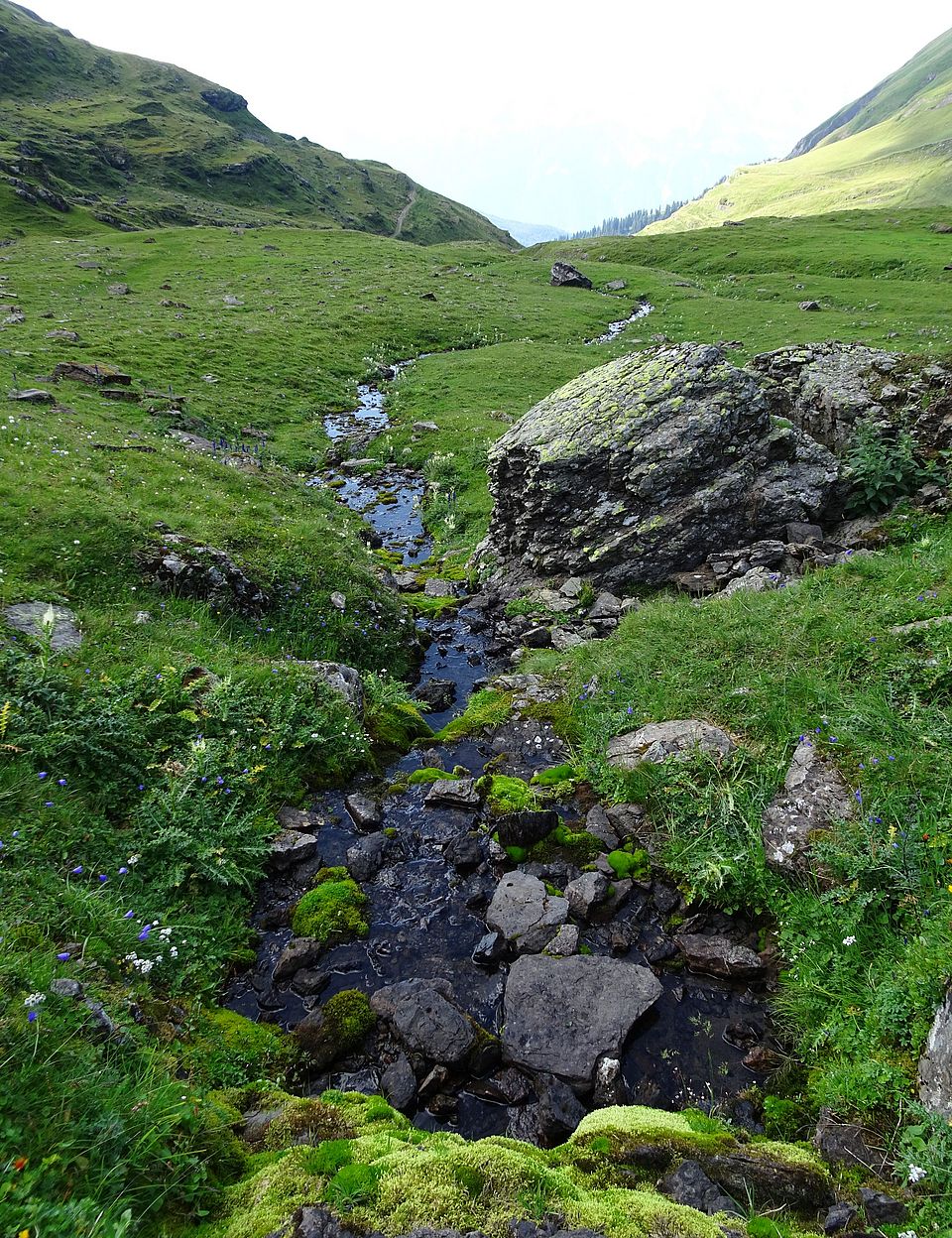Research Group Geoecology
Research of the Geoecology group focusses on past, present and potential future effects of environmental drivers on species, assemblages and ecosystems on a wide range of spatial and temporal scales. We study topics as different as the ecology and biogeography of specialized species and organism-groups, such as aquatic macroinvertebrates inhabiting spring habitats, long-term ecosystem development and past and ongoing species distribution changes reconstructed from biotic indicators (e.g. diatoms, pollen, chironomids, cladocerans). The reconstruction of past climatic and other environmental changes based on biotic assemblages and stable isotope analyses of microfossils in natural archives is a further focus of our research group.
Our research is intrinsically interdisciplinary with close links to Palaeoecology and Ecology, Biogeography, Biogeosciences, Climate Change Research, and Quaternary Geology. Members of the Geoecology group teach in both Geosciences and Integrative Biology.
![[Translate to English:] Oliver](/fileadmin/_processed_/f/e/csm_Oliver_See_b09def46d5.jpg?1614826115)
Research on environmental reconstruction in the Geoecology group focusses on using palaeoecological indicators in natural archives such as lake sediments to reconstruct past ecological and environmental change. Recent and ongoing projects assess, e.g., long-term ecosystem development, changes in carbon and nutrient cycling in lake ecosystems, early and recent human impacts on lakes and landscapes or past climatic changes based on biotic indicators. A particular focus is also on studying the response of ecological systems (e.g. species assemblages, species distributions, ecosystem states) in the modern environment to improve and quantify environmental reconstructions based on biotic indicators.
Current projects:
- SNF project Ultra-high-resolution, multi-indicator assessment of recent climate change impacts in remote Swiss mountain lake ecosystems
- SNF Ambizione project Frozen Ecosystems - Understanding Siberia’s past with a combination of state-of-the-art and next-generation ice core methods
- Mensch, Umwelt, Klima im Thurgau (KUMiT): Bohrkernuntersuchungen im Kanton Thurgau
- Climate reconstruction based on biotic indicators in lake sediments
- Ecosystem development, early human impact and pollution history of lake ecosystems
- Reconstruction of changes in the methane cycling in lacustrine foodwebs
We are interested in a profound understanding of the function of springs as natural habitats. Springs are transitional at the interface between surface water and groundwater and unique habitats due to their special abiotic conditions. Due to their use for drinking water the number of natural springs decreased significantly during the past century, and springs are endangered habitats in Switzerland. In addition, alpine springs are particularly endangered by ongoing climate change and their ecology has only insufficiently been investigated. Further anthropogenic stressors for springs and small freshwater streams are pesticide contamination and structural changes in the waterbodies.
Current projects:
- Dispersal analysis: Geographic and genetic isolation of spring specialists
- Longterm monitoring of springs in the Swiss National Park and the UNESCO-Biosfera Engiadina Val Müstair
- Laboratory experiments: Significance of rising water temperatures and pesticides on aquatic organisms

![[Translate to English:] Schnee](/fileadmin/_processed_/1/4/csm_1Lej_Nair0177_ba62a8d7f3.jpg?1614762709)
